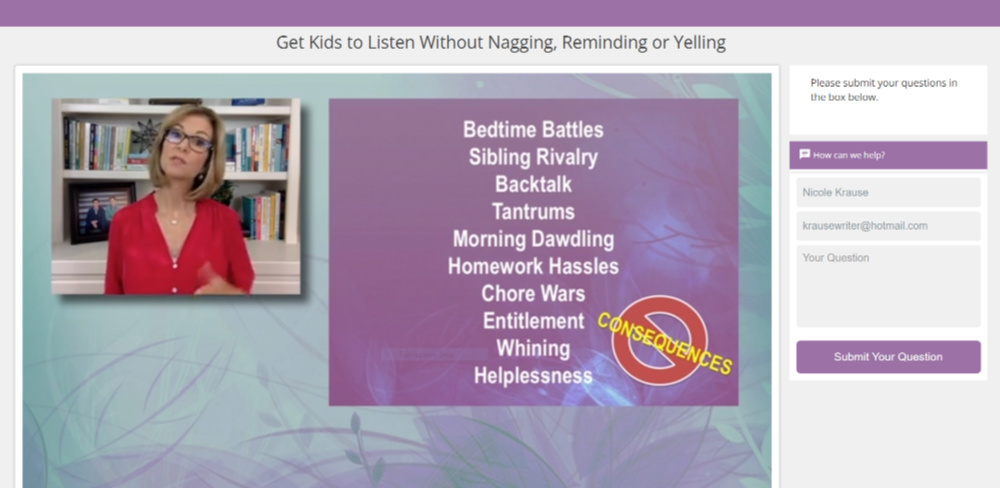Positive parenting solutions is an effective approach for raising children that focuses on encouraging positive behavior and teaching essential life skills.
By providing clear, consistent guidelines and using strategies such as positive reinforcement and proactive discipline, parents can foster a supportive and respectful environment that promotes healthy child development.
This approach emphasizes the importance of building strong parent-child relationships based on trust, communication, and empathy.
It encourages parents to set realistic expectations, recognize and validate their child’s emotions, and teach problem-solving skills.
Positive parenting solutions empowers parents to create a nurturing and loving environment for their children to thrive in.
By implementing these techniques, parents can raise confident, responsible, and well-adjusted individuals.


Credit: www.happierhuman.com
Promoting Emotional Connection With Your Child
Promoting an emotional connection with your child is essential for positive parenting solutions. Developing a secure attachment bond is the foundation for this connection.
By nurturing emotional intelligence in children, you help them understand and manage their emotions effectively. Encouraging open communication allows your child to express their feelings without fear of judgment.
This fosters a trusting environment where they feel heard and valued. Establishing trust and empathy is another vital aspect of promoting emotional connection.
When your child feels understood and supported, they are more likely to develop a strong bond with you.
Taking the time to connect emotionally with your child lays the groundwork for a loving and respectful relationship.
By following these principles, you can foster a positive and lasting connection with your child.
Setting Clear Boundaries And Positive Discipline Techniques
Setting clear boundaries and practicing positive discipline techniques are essential for positive parenting. Effective strategies for setting boundaries include teaching self-control and responsibility.
By teaching children these skills, they learn to make thoughtful decisions and understand the consequences of their actions.
Time-outs and consequences can be helpful tools in reinforcing boundaries and teaching children the importance of their behavior.
However, it is important to use these techniques in a constructive and educational manner. Positive reinforcement is a powerful tool for promoting positive behaviors in children.
By praising and rewarding good behavior, parents can encourage their children to continue making responsible choices.
With these techniques, parents can create an environment that fosters growth, self-discipline, and positive character development in their children.
Cultivating A Supportive And Nurturing Environment
Creating a safe and loving home environment is crucial for positive parenting. By encouraging independence and autonomy, children develop self-confidence.
Building healthy relationships with open communication fosters emotional well-being. Fostering a sense of belonging and inclusion nurtures a supportive environment.
Mindful Parenting: Being Present For Your Child
Mindful parenting is about being fully present for your child in every moment. It involves unplugging from distractions and engaging deeply with your little one.
By minimizing interruptions and prioritizing quality time, you can create a meaningful connection. Balancing work and family life is crucial to practicing mindfulness.
Take the time to be fully engaged with your child, making them feel valued and loved. Being present allows you to truly understand their needs, emotions, and desires.
Each moment spent mindfully with your child lays the foundation for a strong and nurturing relationship.
Embrace the power of mindfulness in your everyday parenting to foster a positive and harmonious environment for your child to thrive.
Problem-Solving And Conflict Resolution Skills
Positive parenting solutions involve teaching children problem-solving and conflict resolution skills.
This includes effective communication during conflicts, promoting negotiation and cooperation, and resolving conflicts in a constructive manner.
By imparting problem-solving techniques to children, parents can empower them to handle disputes in a healthy and productive way.
Encouraging open dialogue and active listening helps kids express their emotions and understand others’ perspectives.
Negotiation and cooperation are essential skills that teach children to find common ground and reach mutually beneficial solutions. This fosters a positive and harmonious environment at home.
Resolving conflicts in a constructive manner involves teaching children empathy, encouraging them to consider other viewpoints, and brainstorming solutions together.
By instilling these skills, parents equip their children with the tools needed to navigate conflicts and build strong relationships. Positive parenting solutions lay the foundation for a peaceful and nurturing family dynamic.
Embracing Positive Parenting Tools And Resources
Positive parenting solutions are essential for raising happy and well-adjusted children. One way to embrace these solutions is by exploring books and online materials that provide guidance.
These resources can offer valuable insight and practical tips for handling various parenting situations.
Seeking support from parenting communities is another effective strategy. Connecting with other parents who share similar values and challenges can provide encouragement and a sense of belonging.
Additionally, utilizing positive parenting apps and technology can be beneficial. These tools offer convenience and accessibility to useful information and resources.
Lastly, attending parenting workshops and courses can enhance your understanding and skills in positive parenting.
These educational opportunities provide a platform for learning from experts and fellow parents. By embracing these tools and resources, you can nurture a positive and nurturing environment for your children.
Encouraging Healthy Behaviors And Self-Care Habits
Positive parenting involves encouraging healthy behaviors and self-care habits in children. One way to promote physical health and wellness is by cultivating good hygiene and self-care practices.
This includes teaching children the importance of brushing their teeth regularly, washing their hands before meals, and taking regular baths or showers.
Another aspect of positive parenting is encouraging healthy sleep habits. Parents can establish a consistent bedtime routine, create a calm and comfortable sleep environment, and ensure that their children get enough sleep for their age group.
Additionally, instilling a balanced diet and nutrition is crucial.
Parents should provide nutritious meals and snacks, and involve their children in meal planning and preparation.
By focusing on these aspects, parents can help their children develop healthy habits that will benefit them throughout their lives.
Developing Life Skills And Fostering Resilience
Positive parenting solutions involve developing life skills and fostering resilience in children. Teaching responsibility and independence skills is crucial for their growth.
By cultivating problem-solving and decision-making abilities, parents empower their children to overcome challenges. Building resilience and emotional strength helps children bounce back from setbacks and adversity.
Encouraging a growth mindset further enhances their ability to face challenges and embrace learning opportunities. Parents should create an environment that promotes positivity, empathy, and open communication to support their children in developing these essential life skills.
By implementing these strategies, parents can raise resilient and independent individuals who are well-equipped to navigate life’s obstacles and achieve success.
Celebrating Progress And Embracing The Journey
Positive parenting solutions emphasizes acknowledging achievements and milestones. It promotes celebrating progress and embracing the journey, focusing on effort rather than just outcomes.
This approach encourages parents to embrace the process and not solely the end result. By cultivating gratitude and positivity, parents can create a nurturing environment for their children.
This perspective enables parents to appreciate the small victories and milestones their children accomplish throughout their journey.
It goes beyond just focusing on the destination and encourages parents to recognize the effort and hard work put into achieving goals.
Positive parenting solutions believes in creating a positive, supportive, and growth-oriented atmosphere, allowing children to thrive and develop into well-rounded individuals.
Frequently Asked Questions Of Positive Parenting Solutions
What Are The Benefits Of Positive Parenting?
Positive parenting promotes healthy child development, builds strong parent-child relationships, enhances communication skills, fosters a positive self-image in children, and reduces behavioral problems.
It encourages cooperation, empathy, and problem-solving skills in children, leading to a peaceful and happy home environment.
How Can I Implement Positive Parenting Strategies?
Implement positive parenting strategies by maintaining open and effective communication with your child, setting clear and reasonable expectations, acknowledging and reinforcing positive behavior, using positive discipline techniques, setting a good example through your own behavior, and fostering a nurturing and supportive environment.
Can Positive Parenting Help With Challenging Behaviors?
Yes, positive parenting can be effective in managing challenging behaviors. By addressing the root causes of behavior, using positive reinforcement, providing clear boundaries, and offering guidance and support, positive parenting strategies can help children develop more adaptive and healthier ways of dealing with challenges.
Conclusion
Positive parenting solutions offer a transformative approach to raising children with love, empathy, and respect.
By implementing these strategies, parents can create a nurturing environment that promotes strong emotional bonds, effective communication, and healthy development.
Consistently praising and acknowledging children’s efforts rather than focusing solely on their achievements fosters a growth mindset and builds their self-esteem.
Encouraging autonomy while setting clear boundaries helps children develop a sense of responsibility and independence.
Active listening and empathetic understanding allow parents to validate their children’s feelings and build open lines of communication.
By adopting positive discipline techniques, such as redirection and natural consequences, parents can guide children towards making better choices and learning from their mistakes.
Ultimately, positive parenting empowers both children and parents to thrive, forging strong connections and laying the foundation for a lifetime of happiness and success.



